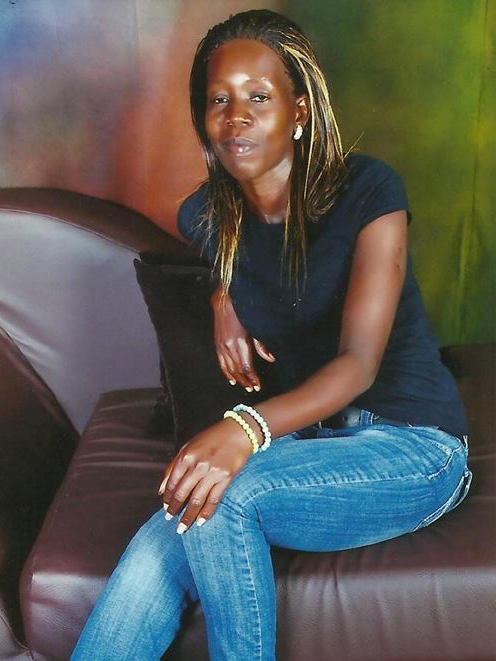Categories
Like a Lioness
The commencement of "Angatunyo Girls" project in Uganda

A few weeks ago I was chatting online with my friend Carol in Uganda and she told me about her niece being in a very desperate situation. She had been raised by her uncle since the death of her parents, but when she was 16 the uncle announced he couldn’t care for her any longer and had arranged her marriage. The girl just wanted to stay in school. Carol asked if I could help.
I met Carol while I was working in South Sudan. She had set up a nice little restaurant near the markets in Aweil. It’s a tough place to do business and I was impressed with how she ran the restaurant, and also the way she developed a community amongst her customers. Since returning to Uganda Carol continued to explore various business models to support herself. In her own way she is an entrepreneur. We began to explore how we might use Carol’s business skills to help her niece stand on her own feet.
I asked Carol to prepare a business plan for a micro-enterprise project that would generate income for her niece’s living costs and education. That’s when Carol told me there are numerous girls in Uganda in the same situation. HIV/AIDS and civil war have left thousands of children dependent on their relatives for their survival. Meagre resources only stretch so far, and there is cultural acceptance of the practice of forcing teenage girls to marry.
A contributing factor to the insidious cycle of inequality is that the powerless don’t have a voice. If the victims of abuse remain invisible the exploitation will continue from one generation to the next - until someone is brave enough to challenge the distribution of power.
Carol has selected a small number of teenage girls being pressured to marry, and will establish micro-businesses designed to provide financial independence. Fulcrum Aid has committed to providing a grant for the start-up costs.
I asked Carol what she wanted to call her project, suggesting she think of a name that depicts strong young women who will determine their own destiny. She settled on the name “Angatunyo” – the word for lioness in their mother-tongue. Within minutes she was telling me how excited the girls were with this name, one of them announcing no-one would force her to marry because now she is a lioness!
One of the girls has written her story…
"Although my parents were peasants we were a happy family. We were initially two children, me being the firstborn and the other, a girl, also being the second born. Unfortunately my younger sister passed away when I was around four years.
When I was in top class in nursery school, my father also passed away and I was six years. This was in 2005. After the death of my father life became very difficult as I had to stay home so many days without attending school because I had to wait till my mother could sell some crops to earn my school fees.
My mother overworked herself so as to earn my school fees. This however led to her weakening health which was already weakened by frequent malaria and other sickness. She, as a result of these fell very sick and when I was in primary four and was ten years, my mother passed away.
I was left to the hands of my uncles who took me. One of them took me to stay with him in his home. At his home I felt overworked. I was the babysitter, the house chore worker as well as the farm worker. However I took it in good faith as part of life for the fact that my uncle took me to his house, gave me shelter and food, and above all allowed me to go to school initially.
I always endeavoured to read my books before bed time however much I got tired.
Finally I sat for my Primary Seven and scored 24 aggregates.
My uncle took me to continue with me secondary education. In form one and two there was no complaint, but when I reached form three my uncle decided that I could get married. Little did I know that he had already got a suitor for me, a son of his friend.
I told my uncle that I still wanted to study. I even told him that I was willing to stay home the whole academic year, and after we have worked for the money I would resume school the following year. My uncle adamantly refused to listen to my pleas. He told me to choose between going away from his home and getting married.
At night I cried and prayed. I asked God to give me wisdom.
The following morning I went to talk to one of my aunties, a sister to him. I told her everything. She was not okay with the idea. It disturbed her very much. She told me to give her some time to think and that she would give me her ideas very soon.
On her own initiative she called my cousin who stays in a far off town telling her everything. As soon as my cousin heard of this she decided to come and talk to my uncle, but he refused and also told her of the choices he has given me. He finally said if she likes she can go along with me.
My cousin, after seeing my uncle not changing his decision, decided to take me along with her. I am now staying with her surviving on her small business income. Her idea is to equip me with life saving skills like tailoring, sewing baby clothes and sweaters.
But I also want to go back to school, no matter how long it takes."

